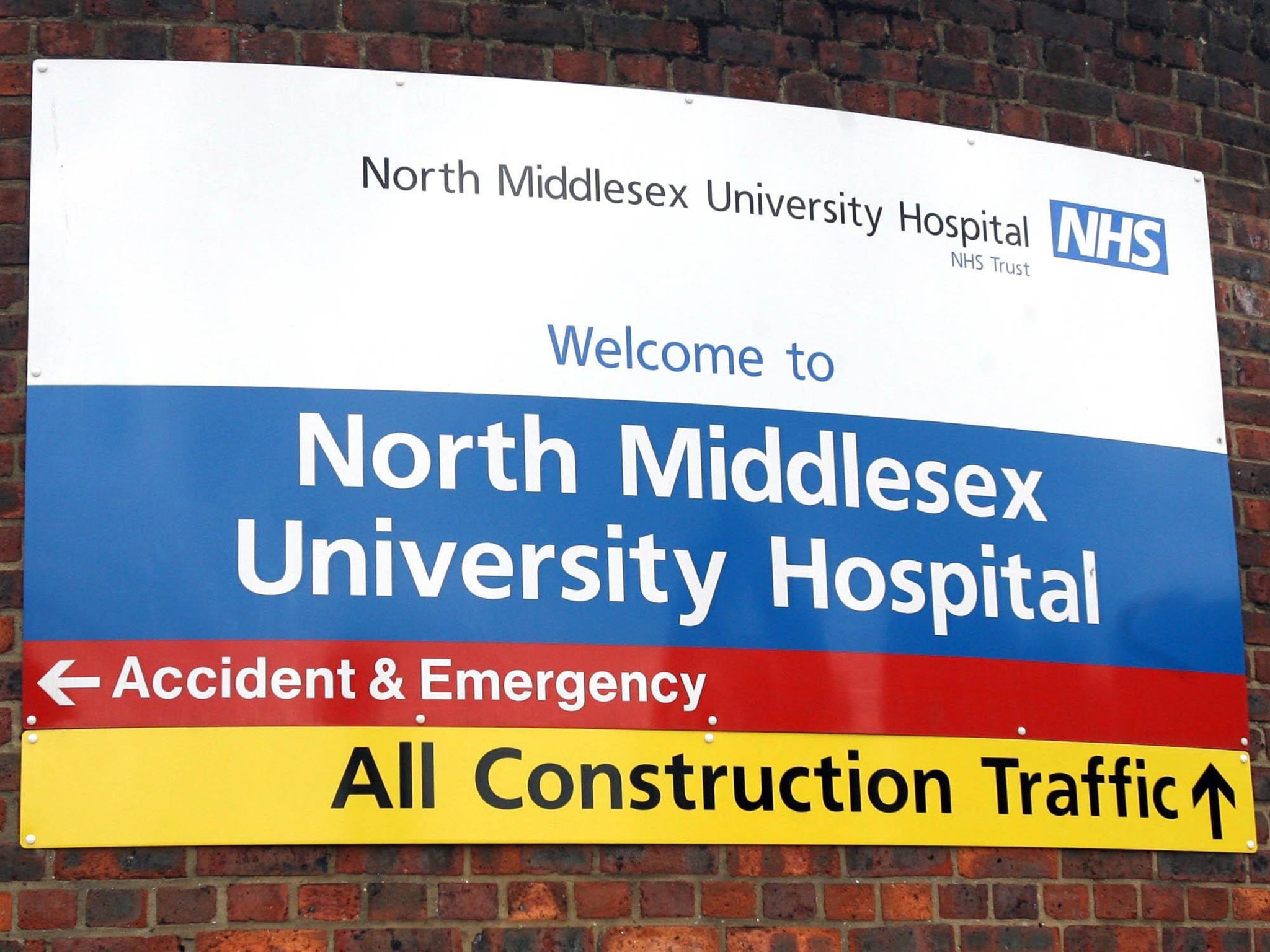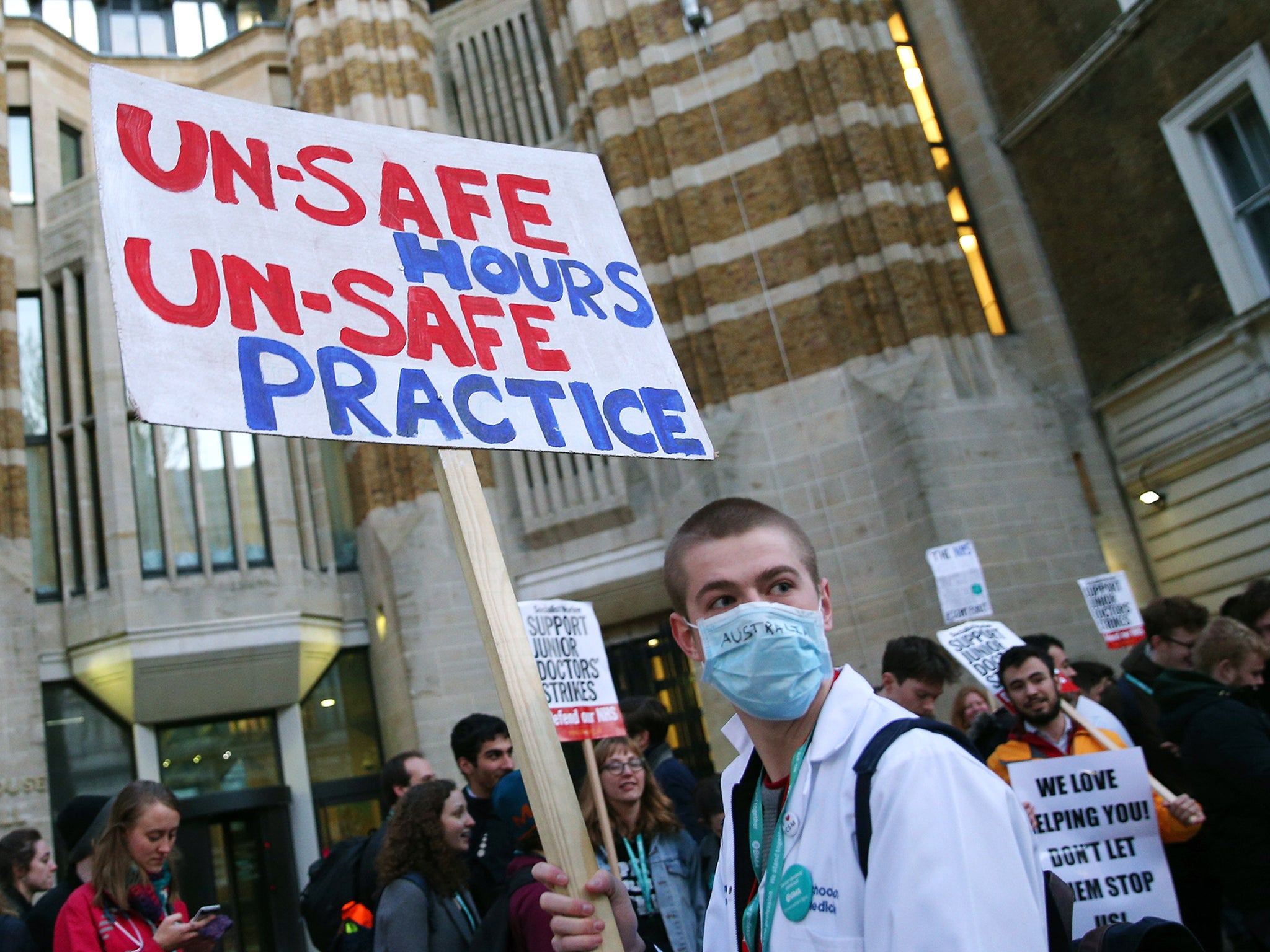North Middlesex Hospital patient lay dead for more than four hours in 'inadequate' A&E department
Report finds there are not enough competent doctors to treat patients at night

Your support helps us to tell the story
From reproductive rights to climate change to Big Tech, The Independent is on the ground when the story is developing. Whether it's investigating the financials of Elon Musk's pro-Trump PAC or producing our latest documentary, 'The A Word', which shines a light on the American women fighting for reproductive rights, we know how important it is to parse out the facts from the messaging.
At such a critical moment in US history, we need reporters on the ground. Your donation allows us to keep sending journalists to speak to both sides of the story.
The Independent is trusted by Americans across the entire political spectrum. And unlike many other quality news outlets, we choose not to lock Americans out of our reporting and analysis with paywalls. We believe quality journalism should be available to everyone, paid for by those who can afford it.
Your support makes all the difference.A patient lay dead for more than four hours before being discovered in a busy London A&E department branded “inadequate” by health inspectors.
The review of North Middlesex University Hospital by the Care Quality Commission found there were too few competent doctors to assess and treat patients at night in the department, which is one of the busiest in the country.
Staff told inspectors they were worried about the competency of middle-grade and less experienced doctors who were left in charge of the emergency department.
There was no consultant presence in the department after 11pm and in some instances patients were sent home because doctors were “unable or unwilling to take decisions”, the report said.
Inspectors were told about the dead patient while investigating whether nurses were able to conduct hourly rounds
The incident was one of the 22 so-called “serious incidents” (SI) logged by the department - which sees 500 patients a day - in the past year.
The report said: “We were told that one recent SI investigation concluded that a failure to take hourly rounds meant that a patient had lain dead for up to four and a half hours before being found."
Other incidents included a patient being left sitting on a bedpan for more than an hour and only one commode being available for more than 100 patients.
This was partly due to nurses being unable to conduct frequent rounds due to low staff numbers.

It found a typical ratio of 20 patients to one nurse, when 4:1 is considered optimal.
As a result, although the hospital reached its target of hourly rounds completed 90 per cent of the time in January, this had fallen to as low as 61 per cent by the end of March.
Overall the hospital was rated as “requires improvement”.
Sir Mike Richards, CQC chief inspector of hospitals, said: "People going to the emergency department at the North Middlesex University Hospital NHS Trust are entitled to a service that provides safe, effective, compassionate and high quality care.
"When we inspected we found that patients were waiting for a long time to be seen, without being assessed by a doctor in the first place.
"North Middlesex University Hospital is one of the busiest A&E departments in London - so it is worrying that we found that there were not enough experienced doctors on call to deal with demand. We have already seen some progress since that original inspection.
“A new leadership team is in place in the emergency department, there are moves to appoint more senior doctors - and I note that the trust is calling on consultants from other departments within the hospital to provide the routine daily support to A&E which is so badly needed.”
North Middlesex University Hospital medical director Dr Cathy Cale said: "We are extremely sorry for the current problems in A&E and for the long waiting times for some patients.
"We are committed to getting back to the standards that we and our patients expect and, working with our health partners, are taking all the necessary steps to address the concerns raised, particularly the shortage of doctors which lies at the heart of it."
The impact of staff shortages is likely to cause further embarrassment to the national government on the day it announced it will unilaterally impose a new contract on junior doctors after they voted to reject its final offer.
Junior doctors say the contract - which will see them working more weekends and longer hours for less overtime pay - is unsafe because it will increase their workload even further.
Following the first ever junior doctors’ strike there was a 1,000 per cent increase in the number of doctors applying to work abroad.
Additional reporting by PA
Join our commenting forum
Join thought-provoking conversations, follow other Independent readers and see their replies
Comments